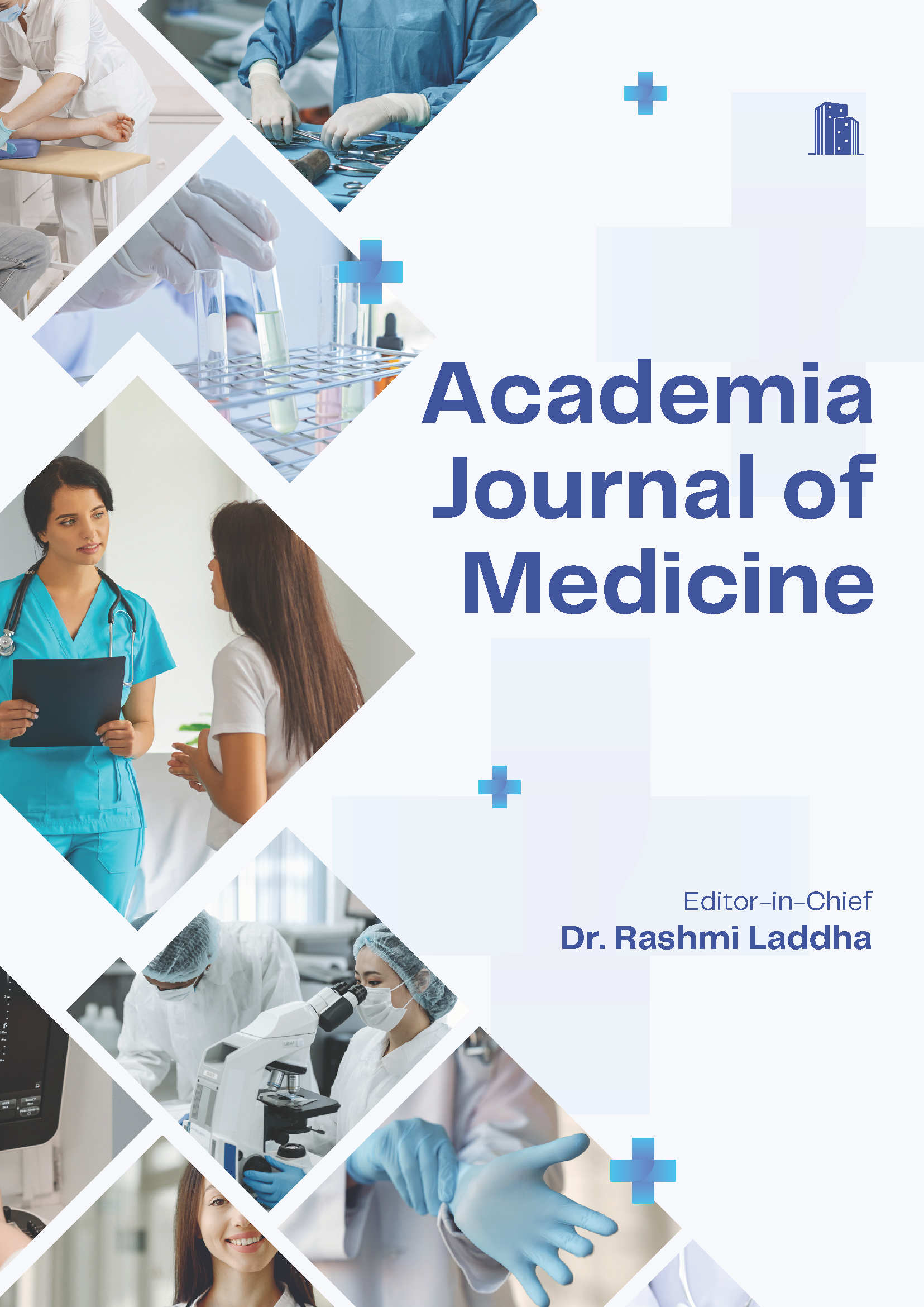To Assess Correlation of Fasting Blood Glucose, Hb1Ac and Serum Lipid Level in Type II Diabetes Mellitus Patients
DOI:
https://doi.org/10.48165/rd50ts35Keywords:
Diabetes Mellitus, Fasting blood glucose, Glycosylated hemoglobinAbstract
Background: Diabetes Mellitus (DM) refers to a group of common metabolic disorder that share the phenotype of hyperglycaemia caused due to either deficiency of insulin secretion or insulin resistance. The present study was conducted to assess correlation of fasting blood glucose, Hb1Ac and type II DM in given adults. Subjects and Methods: The present study was conducted on 134 patients with type II diabetes mellitus (DM) of both genders. Patients were subjected to estimation of fasting and random blood glucose level. Modified method of Fluckiger and Winterhalter was used for estimation of glycosylated haemoglobin (HbA1C). Results: Out of 134 patients, males were 84 and females were 50. Age group 20-30 years had 11, 30-40 years had 14, 40-50 years had 38, 50-60 years had 46 and >60 years had 25 patients. The mean fasting blood glucose level in patients with good degree of control was 106.2, in fair was 164.4 and in poor was 208.2. Glycosylated hemoglobin level was good (6.74), fair (8.12) and poor (12.54). A positive correlation of fasting blood glucose and glycosylated hemoglobin level and serum cholesterol & glycosylated hemoglobin level (P< 0.05) was found. Conclusion: Authors found a positive correlation of fasting blood glucose and glycosylated hemoglobin level and serum cholesterol & glycosylated hemoglobin level in type II diabetes mellitus patients.
References
1. Reimer F et al: Incidence of hyperlipoproteinemia in patients with chemical and clinical diabetes. KlinWochenshr 1973; 51:973. 2. Gabbay K.H., Hasty K., Breslow J.L., Ellison R.C., Bunn H.F. and
Gallop P.M. Glycosylated haemoglobin and long term blood glucose control in diabetes mellitus. J. Clin.Endocr. Meta 1977;44:859. 3. Ricketts HT. Derangement vascular disease in diabetes Am J Med 1955;29:933.
4. Sharma D, Bansal BC, Prakash C. Serum lipid studies in insulin dependent diabetes below the age of 30 years. JIMA 1970;54:416. 5. Sosenko JM, Breslow JL and Miettinen OS. Hyperglycemia and plasma lipid levels. A prospective study of insulin dependent diabetic patients. New Eng J Med 1980; 302:650.
6. Pietri A, Dunn FL and Raskin P. The effect of improved diabetic control on plasma lipid and lipoprotein level: a comparison of conventional therapy and continuous subcutaneous insulin infusion. Diabetes 1980; 29:1001- 5.
7. Somogyi M. and Nelson. Determination of blood sugar. J. Biochem. 19: 160, 1945.
8. Paulsen E.P. Glycosylated haemoglobin in childhood diabetes. Metabolism 1973;22: 269.
9. Mahesh Dave, Ajay Kumar Gupta, Puneet Patel, Heernath. Correlation between fasting blood sugar level, HbA1C level and serum lipid levels in type 2 diabetes mellitus patients. International Journal of Contemporary Medical Research 2019;6(7):26-29.
10. Compagnucci P., Cartechni M.G., Bolli G. et al. The importance of determining irreversible glycosylated haemoglobin in diabetes. Diabetes 1981;30:607. 14.
11. Elkeles R.S., Wu J. and Hambley J. Glycosylated haemoglobin, blood glucose and HDL-cholesterol in insulin requiring diabetics. Lancet 1978;2: 547.
12. Nabarro J.D.N., Mustaffa B.E., Morris D. et al. Insulin deficient diabetes. Diabetologia 1979;16:5.

